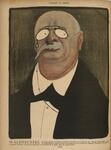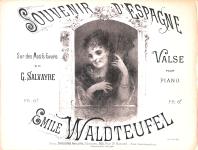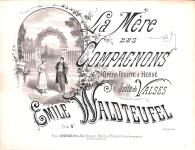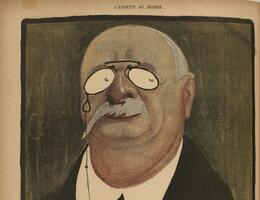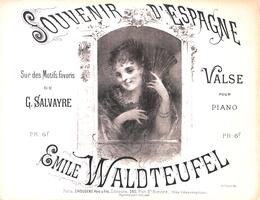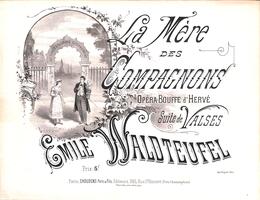![L'Assiette au beurre, 1902/09/27 [Waldteufel]](/sites/default/files/styles/440x580/public/2023-12/ab_1902_09_27_waldteuffel_c_gallica.jpg?itok=XthCy2_B)
Émile WALDTEUFEL
1837 - 1915
Conductor, Composer, Pianist
Born into a family of Jewish musicians in Strasbourg, Émile Waldteufel worked as a dance music composer – like his father Louis (1801-1884) and his brother Léon (1832-1884), both violinists – while at the same time cultivating the piano, his Bavarian mother’s favourite instrument. His musical training included a spell at the Paris Conservatoire between 1853 and 1857 in the piano class of Adolphe Laurent, where he met Jules Massenet and Georges Bizet. At the age of twenty, however, he left the institution without taking his final examinations in order to support himself financially. He tested the pianos of the firm of Scholtus and gave lessons, while also publishing his first waltzes. His prolific output, combined with the support of Prosper Mérimée and Charles Gounod, quickly led to contacts with the imperial court. He followed the court to Biarritz in the summer to direct its official balls before being entrusted with the organisation of their equivalent at the Tuileries Palace. In 1865 he obtained the title of ‘private pianist attached to the person of the Empress Eugénie and piano master to the Prince Imperial’. Despite the fall of the Second Empire, Waldteufel retained a certain hold on the festive whirl in Paris and even became director of balls at the Opéra in 1889. Although today we mainly remember Amour et Printemps (1880) and Les Patineurs (Skater’s Waltz, 1882), the three hundred waltz suites he published form a continent still awaiting exploration. It encompasses both adaptations of the operatic successes of the time and original pieces intended to comment on events in the elegant society of the second half of the nineteenth century.

